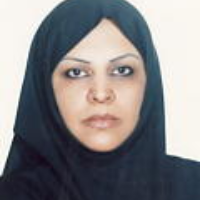Conceptual framework of social creativity and its application in the theory of creative city
Author(s):
Article Type:
Research/Original Article (دارای رتبه معتبر)
Abstract:
This paper encourages a new approach to reconsider the current attitude towards creativity in the theories of the creative city, creative industries and creative economy. This reconsideration is necessary, because there is a threat that the individualistic and physiologic approach now arranges the concept of the creative city over any further exploration of creativity and its wider role in the economic, social and cultural environment. Creativity is shown as an issue in the domination of talented artists and geniuses in the theories of the creative city. This individualistic approach leads to ignore the social dimensions, levels, and functions of creativity. However, creativity is increasingly assumed as a social phenomenon in some studies, especially in the context of social groups, organizations, and city. An integrative review of the literature reveals that the engagement in creativity processes occurs not only in individuals, but in individuals interacting with each other, in group and team works, multilevel systems and finally in complex systems such as cities. There is a need to re-conceptualize creativity as a social phenomenon, resulting from the interaction between human beings and other people, their surrounding environment and the artifacts that represent essential collective knowledge. This article offers a conceptual framework for the main processes of social creativity that integrates perspectives from a body of related literature by using a conceptual map. Criteria for social creativity in the context of urban planning can be categorized into three general categories as contextual factors, sustained everyday practices and conscious activities. The most basic requirements of social creativity are the suitable contextual factors (a set of historical, social, cultural, and political conditions) and the existence or creation of motivation in society. Social creativity in urban planning context requires a paradigm shift and change of approach toward creativity from individualistic (physiologic and expert-based) viewpoint to holistic (sociological and people-based) approach. This paradigm shift plays the role of creativity in the larger domain of urban planning discipline and thus the literature of the creative city theory provides the basis for considering it as a social issue. Creative urban planning requires a collaborative, facilitative, and participatory process based on the discourse making among different stockholders and provides the possibility for the local society to accept the role of experts in the process of urban planning. Therefore, this paper discusses the relationship between individual and social creativity and analyzes the need for the social approach in the urban planning. The paper also suggests an agenda for re-qualifying the creative city theory according to this fundamentally social conception, including how this can be achieved through implanting a new concept of social creativity. The findings include a conceptual diagram which shows the analysis and interpretation of the relationship between actors and social creative process, context and the results of creativity. Social creativity requires social action and adopting process-based approach to urban planning, promoting dialogue among actors, participation and everyday experiences. In conclusion, several proposals are offered for the application of concept in the theory of social creativity and creative city.
Keywords:
Language:
Persian
Published:
Hoviate shahr, Volume:12 Issue: 34, 2018
Pages:
5 to 18
https://magiran.com/p1891088
مقالات دیگری از این نویسنده (گان)
-
Analyzing the Influencing Factors in the Ranking of Iran’s Provinces: An Economic and Sustainable Competitiveness Approach
Hamidreza Bahmanpour Khalesi *, Goharrizi
Journal of Program and Development Research, -
The Effects of Spatial Patterns of Urban Green Structure on the Thermal Changes of Urban Heat Islands: The Case Study of Tehran
Goharrizi *, Sohail Gheshlaghpour
Journal of Environmental Studies,



